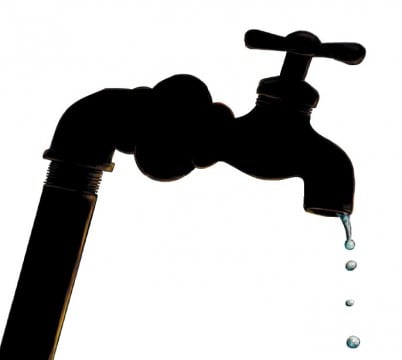
If our government officials had come to the South Asian Cities conference on Saturday, there was a lesson or two they could have learned from Neil Macleod - the man responsible for providing piped water to over a million people of Durban, South Africa.
Twenty years experience of changing attitudes, culture and systems was squeezed into an hour-long session on the second day of the urban planning conference. Macleod flew straight from South Africa to the session. “Hopefully I can keep you awake, and keep myself awake,” he said. The civil engineer and the head of Water and Sanitation at eThekwini Municipality did light up the session,
He showed pictures comparing the urban and poor areas of Durban, proudly pointing out that all the houses in the rural areas now have tap water. “Since 2000, 1.3 million people have water and 700,000 people have sanitation service.” He admitted that sanitation was still lagging because it didn’t get the attention it needed. “The 2002 cholera breakout promoted them to work around that area,” he said.

Since Macleod took charge of the Durban Metro Water Services in 1992, the impoverished areas of the city - which had faulty water pipes, pit toilets, and water going to waste - have come a long way.
Before 1995, the national government was the regulatory body with 800 municipal water supplies and 147 water services. A few years later, the authorities were decreased and Macleod was left to deal with 38 of them, using different work methods. “Some people used brass meters, others used plastic ones. We had to retrain the entire staff and bring in competitive people.”
He learnt that water is a political issue and nothing could be done in isolation with the government. Macleod also changed people’s attitudes, making them happy customers of the water connection.
Another interesting initiative Macleod launched was to reuse and recycle sewage. “Sanitation is not dirty and is a valuable commodity.” The sewage sludge collected from pit toilets goes into a machine and comes out as organic fertilizers for agriculture.
His team is also processing urine and extracting phosphorous. “I have one phosphate bottle on my table,” he said, as the crowd looked in awe. “It is not a wasteful thing.”
Macleod found similarity in the poverty levels in South Africa and Pakistan. “We are fellow sufferers and have poor people to provide services to,” he said. How to bring reforms? He says it is a delicate process. “We resist change, but it is important.”
Published in The Express Tribune, January 12th, 2014.

1720097164-0/BeFunky-collage-(9)1720097164-0-165x106.webp)
1730446133-0/BeFunky-collage-(7)1730446133-0-165x106.webp)


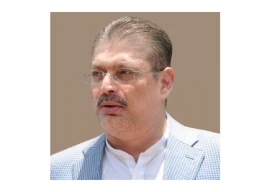


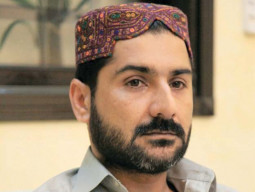
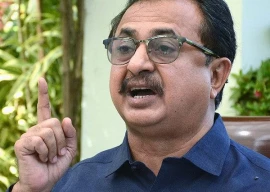
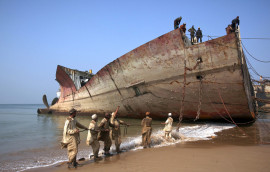






COMMENTS
Comments are moderated and generally will be posted if they are on-topic and not abusive.
For more information, please see our Comments FAQ